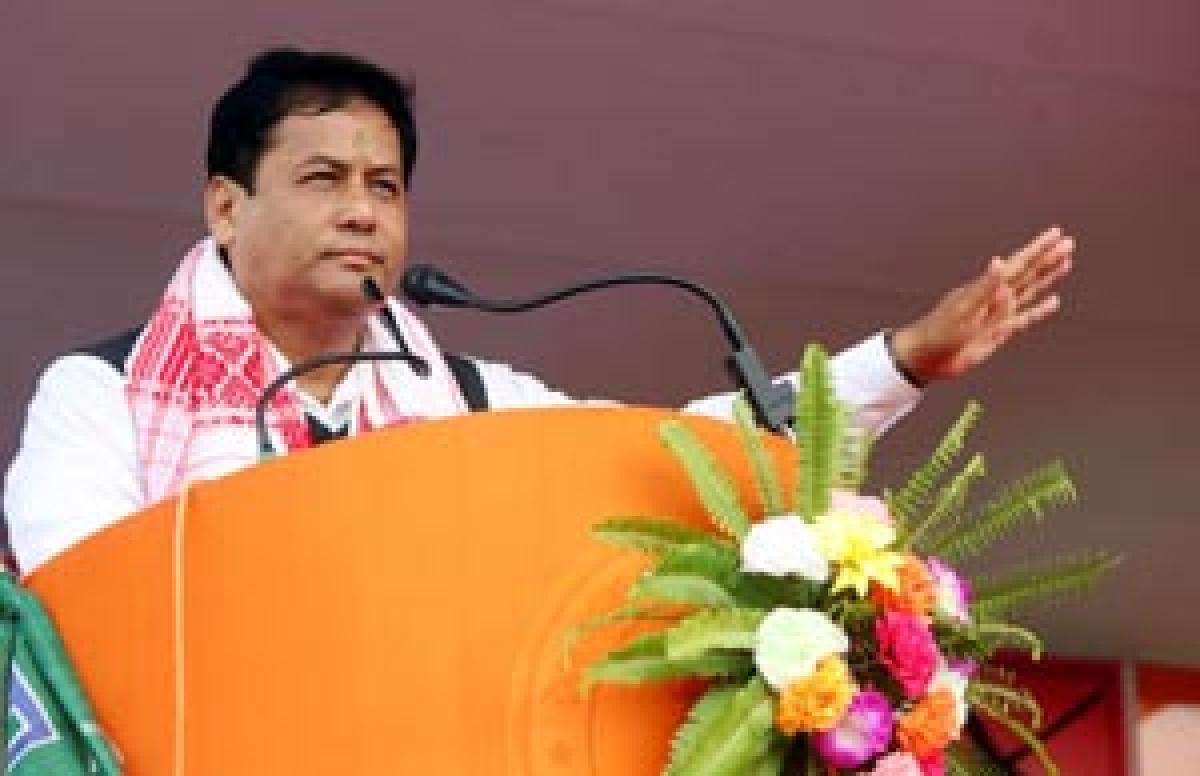Live
- Must-Watch OTT Originals in 2024: The Year’s Best Shows and Movies
- 40 Indian startups secure over $787 mn in a week
- India now formidable force on chess board
- Raghavendra Mutt pontiff visits Tirumala
- Whistleblower of OpenAI found dead in US apartment
- Trump’s US-first policy & India’s strategic latitude
- Chandrababu pays tribute to Potti Sriramulu and Sardar Vallabhbhai Patel
- India may miss TB elimination target
- Revolutionizing Women’s Health: The Era of AI
- Govt bill explains plan for ONOE
Just In

The BJP’s stupendous victory in Assam is indicative of the people endorsing Prime Minister Modi’s economic programmes wherein the hope he has kindled is reflected in the mandate.
The BJP’s stupendous victory in Assam is indicative of the people endorsing Prime Minister Modi’s economic programmes wherein the hope he has kindled is reflected in the mandate. Merely to aver that the results were due to polarisation of votes is over-simplifying a myriad picture. During elections polarisation does not take place simply because people want to jump to one side. Instead, the hopes such a combination generates leads to the final result.
Besides, the NDA’s win in this North-eastern State also point towards the rejection of Congress policies Manmohanomics on all fronts, be it social or political. Add to these aspirations for better economic conditions, jobs, agriculture and industrial growth have also changed the equation. The PM’s catch-line: Gramoday to Bharat Uday created an appeal for voters and helped the Party leave its stamp in other States as well, though gains might have been minimal. In addition, opening an account in difficult terrain itself is a sign that the BJP is making inroads into virgin pasture.
However, this is also a challenge for the Prime Minister, who completes two years in office on Thursday, 26 May. His numerous programmes from Make in India to Stand Up and Start-Up India, reviving agriculture, eliminating corruption, direct cash benefit et al have been able to win people’s trust. Indeed, it is no less than a miracle especially amid sharp non-cooperation by a combined Congress-Left Opposition. Both Parties did not leave any chance to heckle the NDA Government, stall land and GST bills and cause ruckus in Parliament at the slightest opportunity.
Notably, Bangladesh’s relationship with the Modi Government is particularly cordial, especially against the backdrop of sealing the land swap deal to demarcate the Indo-Bangladesh border once and for all. Moreover, it is important to note that only because Dhaka agreed to allow New Delhi to use its fibre optic cables, Tripura has got internet connectivity which helped generate many jobs. Additionally, with Iran too new deals in energy and ports are likely to create a new security and job environment.
Undeniably, people seem to be realising that the Modi Government’s projects would yield results as most of these programmes are long term and fructify in the course of time. Politically, such plans till date were not hot selling as populist schemes were the favourites of Parties irrespective of whether these succeeded or not. Nobody also cared, as one can see in Delhi now, how such programmes emptied the Government exchequer.
Pertinently, much of the current dismal economic scenario at the Central level and in the States is the result of such populism. In Assam, no such populist slogans were raised as also there was an undercurrent that once the BJP-led Government came to power, the Bangladeshis would be sent out. Remember, the Saffron Party’s ally, AGP has been demanding getting rid of illegal migrants, read Bangladeshis, since its 1985 accord with then Prime Minister Rajiv Gandhi.
Undoubtedly, the issue is ticklish, yet no populist projections were made. Clearly, the present scenario is challenging wherein the Modi Administration would have to make efforts to solve this volatile issue, not only because it made a promise but also because the Prime Minister and the new Chief Minister Sonowal’s State Government belong to the BJP. Consequently, as Assam’s economy and the North-East progresses, Prime Minister Modi would have to look for amicable solutions of these irritants without disturbing either the social fibre or relations with India’s neighbour.
The Government has to create new jobs. One problem is that jobs like pathological investigations which required 1000 technicians a decade ago, can now be done by a workforce of about 200 in less than a day as technology is making people redundant. This apart, many companies are reducing staff strength as their businesses are going through a squeeze. Whereby, despite a high growth of 7 per cent, the economy is generating fewer jobs per unit of the GDP.
Importantly, this is the problem for a nation which is adding about 1.5 to two crore job seekers every year. But the country has been able to generate only 20 to 30 lakh jobs at the most, many of which are extremely low paid. Thus, the industry is unwilling to add new hands. According to Chairman of Hindustan Construction Company Ajit Gulabchand, new job creations are poor because the investment cycle has not started. In fact, the Government is aware that many large corporate houses having high deposits are not investing at all and there are many which are divesting or discussing sale of units.
Sadly, whatever growth there might be does not seem to be translating in to jobs. Possibly, as growth is not in employment-oriented sectors or overall growth is overstated. In sum, Modi has the onerous task to correct this. He has to reorient the economy wherein the perception about his programmes and reality has to match. Assam should not be a political wonder -- - the belief of its people in the Prime Minister’s economic vision has to be real for the nation to transform.
By Shivaji Sarkar

© 2024 Hyderabad Media House Limited/The Hans India. All rights reserved. Powered by hocalwire.com







